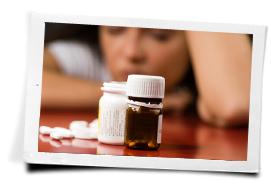What is Drug Detox?

Call (888) 223-4410 anytime to discuss detox and rehab options if you or a loved one has been diagnosed with addiction and/or a mental health disorder.
During drug detox, the body is completely rid of the toxins from the drugs that the individual uses. Drug detox eliminates the physical dependence that an addict has on a drug, effectively preparing them to enter a drug rehab program to seek help for the psychological dependence factors. The goal of drug detox is to stabilize the addict both physically and mentally in preparation for psychological addiction treatment and rehabilitation.
Withdrawal Symptoms During Drug Detox
Every drug has a different set of physical withdrawal symptoms that are felt by the user. While some drugs share many of the same symptoms of withdrawal, others have their own unique withdrawal symptoms as well. Additionally, each individual drug user will feel different effects from drugs as well as different withdrawal symptoms during drug detox. Here is a look at some of the most common withdrawal symptoms associated with various drugs:
- Anxiety
- Depression
- Paranoia
- Sleeplessness or Insomnia
- Pain in the joints or muscles
- Fever or chills
- Sweats
- Fatigue or extreme exhaustion
- Suicidal thought
- Cravings for sugar, drugs or alcohol
- Weight loss, loss of appetite, nausea
Why Drug Detox is Necessary
Drug detox is an absolutely vital part of any addiction treatment and rehabilitation program simply because drug rehab cannot begin until detox has taken place and the individual is no longer physically dependent on the drug. The chance of an individual relapsing and using drugs during the drug detox phase is significantly higher than it is once all drugs have been effectively removed from the bloodstream and the individual is no longer physically feeling the withdrawal symptoms and effects of the drug.
Those who go through drug rehab without first effectively detoxing from the drug they are addicted to are likely to fail. In fact, when drugs are still in the system and drug rehabilitation efforts such as counseling and therapy are taking place, the treatment does not have the same effects as if there are no drugs in the system and therefore the patient will not be happy with the outcome of the treatment. All of this equates to a significantly higher likelihood of relapse which is why drug detox is necessary to reduce the chance of such outcomes.
Drug Detox is Not Rehab
It’s important to recognize that drug detox is not the complete drug rehabilitation process and that once an individual has completed drug detox they are not 100% cured of their addiction. Drug detox, though vital to any successful treatment program, is only the first step of drug rehab and must be followed with counseling, therapy and aftercare to ensure the long term sobriety of the individual. Any comprehensive drug rehab program will include drug detox as a first step of treatment followed by therapy, planning and aftercare to ensure the continued drug free status of the patient.
